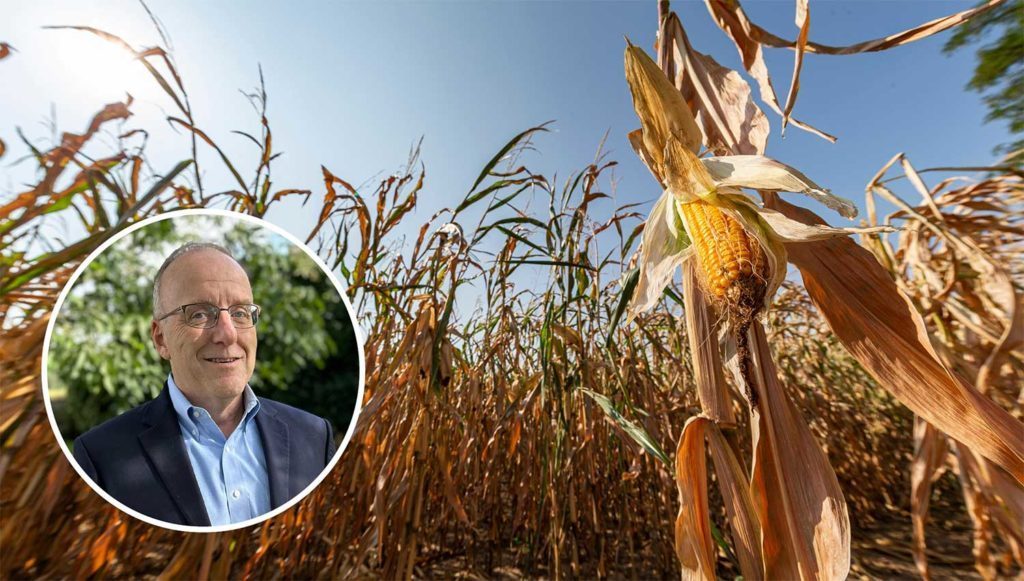If we look at the reasons for yield losses in field crops, we see that abiotic stress has a much bigger impact than pests, weeds or fungal diseases. Yet, these latter biotic stressors account for the lion’s share of agricultural R&D! This begs the question: why isn’t the phytopharmaceutical industry focusing more on abiotic stress factors and how to reduce them? Apart from a few innovative companies in the field of biostimulants or plant breeding, “no one really focuses on this area,” says the expert.
Dr. Mark Trimmer raised the issue during the International Climate Change Prevention Day organized by Elicit Plant in September 2023. Co-founder of the first North American company to focus exclusively on natural crop protection products, the CEO of Dunham-Trimmer took stock of the recurrent droughts in the US and Latin America before highlighting the market’s growing interest in solutions to address these extreme weather events.
Corn, soybean and cereals increasingly affected by water stress
Droughts are no longer confined to the southern states of the American continent. In 2023, the Midwest, Iowa and Minnesota were particularly hard hit by water shortages. Over 30 million hectares across the US suffered yield losses, and 8 million hectares of these qualified for crop insurance payments at an estimated cost of $7.4 billion. Two years earlier, the entire west of the continent was affected, with major consequences on production.
In South America, the entire La Plata basin experienced its worst drought in 75 years. In Brazil, the agricultural production index is said to have fallen by 5.2% in early 2022 due to lower corn and soybean yields. Drought-related yield losses “had a six-billion-euro impact on the Brazilian economy, and that probably drastically underestimates an event of that size,” explained Dr Trimmer. Argentina, Chile and Uruguay were also impacted.
Elicit Plant’s solution prevents yield loss
In this context, what can you do to protect crops? While irrigation and varietal selection are still the two most widely used practices in the US, 30% of growers now use biostimulants. They are one of the few mitigation measures that can be applied as a preventive response, but are still too ineffective. None of them really targets water stress. Dr Trimmer emphasizes that this is where Elicit Plant and its phytosterol-based solutions have a role to play as they fall into a completely new category and offer impressive results.
The expert cites the Midwest as an example, where average corn yields are around 12,500 kilograms per hectare compared with 10,900 kilograms per hectare in the event of drought. While the use of a conventional biostimulant can save up to 550 kilograms per hectare, the Elicit Plant solution achieves twice that, i.e. over 1,000 kilograms. This potential has already been identified by distributors, but has yet to be adopted by growers. Dr Trimmer concludes by highlighting the need for grower education on the value of these products, and how to use them successfully.


